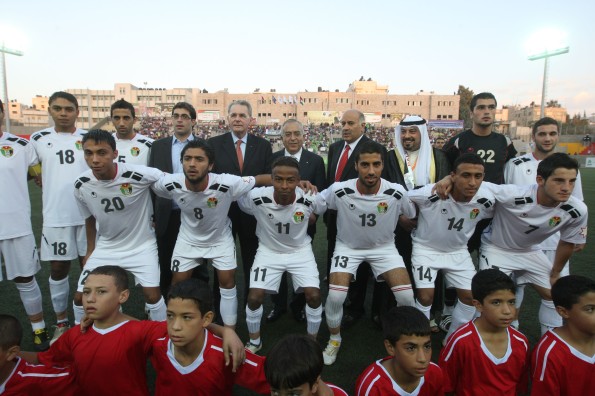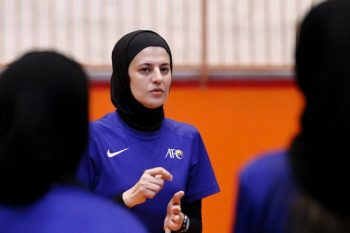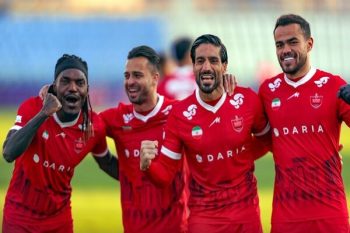Asian Cup 2015: An Introductory Guide

Not Just the Bottom Line – KUALA LUMPUR, If you haven’t been following Asian football closely, then the 2015 Asian Cup is probably a good starting point. The continent’s major tournament, alongside the African Cup of Nations, provides good value for money when it comes to entertainment.
The 2015 edition takes place in Australia as the Socceroos aim to become the first hosts to lift the trophy since Japan did it last in 1992. They will have their work cut out against the winner of 4 of the tournament’s last 6 editions, Japan, as well as 2-time winners Korea, 3-time winners Iran, fallen giants and 3-time champions Saudi Arabia, and the winners of the 2007 edition, Iraq. Emerging powers such as Uzbekistan, UAE and Qatar may also have championship ambitions.
Preview
The first round is divided into four groups, with seeded sides with Australia, Team Melli of Iran, Japan and Uzbekistan all seeded. On paper, Groups B and C look evenly balanced, making it difficult to pick the sides that could progress. Group A sees the hosts go up against Korea, Kuwait and Oman. Whilst Group D should see Japan finish first and be joined by Jordan or, more likely, Iraq. Palestine makes its tournament debut and will probably be happy to be there, although it’s had the most stringent of preparations for the competition. Group B should see Uzbekistan progress whilst Saudi Arabia, North Korea and China will probably fight for second spot. Group C is an all-West Asian affair with Iran heading UAE, Bahrain and Qatar. Team Melli does not enjoy playing teams from the Middle East and has been upset in recent years against sides such as Lebanon, Bahrain and Jordan and has been perennially held by Qatar too. This group may go into the final day match-ups before the winners or runners-up are known. In terms of progression, Groups A & B as well as C & D are paired in the Quarter Finals.
Korea and Iran remain traditional power-houses in Asian football, but, especially in the case of the Iranians it is largely based upon reputation. Team Melli last won the tournament in 1976 and only came close once in 1996 when the exciting team led by Ali Daei, Khodadad Azizi and Karim Bagheri finished 3rd after losing on penalty kicks against eventual winners Saudi Arabia in the semi-finals. Nevertheless, Iran remains West Asia’s strongest challengers for the title. If you are looking for a dark-horse then Uzbekistan is destined for far more success than it has achieved so far in Asian football. They have an exciting and attacking line-up and have a genuine superstar in Odil Ahmedov, of Russia’s Krasnodar, who provides the heart-beat of the side.
If you were a betting man then its best to put your money on the safe choice of Japan. Australia will be buoyed by the home grown but Ante Posteloglou is currently overseeing the rebuilding of an aging Socceroos side. This tournament may come a little early for the Australians in terms of genuinely challenging the Japanese but over the course of 90 minutes (or 120 for that matter) anything can happen.
What You Should Know
• This is the 16th edition of the Asian Cup
• Only 6 times has the hosts won the tournament
• Ali Daei is the record goal-scorer in the finals tournament with 14 goals during 3 editions
• 15 hat tricks have been scored throughout the tournament with 6 of them scored by Iranians and 3 by Japanese players
• 4 Brazilian managers have led teams to win the tournament in the past
• The 2015 Asian Cup may break China’s attendance record from the 2005 edition (31,877 per game)
• Iran and Korea are appearing for a record 13th time
• Palestine is appearing for the first time
• Iran has won the most matches at the Asian Cup (34) and scored the most goals (112)
• Japan has won the tournament for a record 4 times
• Only Australia, North Korea, Uzbekistan, Bahrain, Iraq, Palestine & the UAE will be managed by local head coaches
Players to Watch (Key Man / Emerging Talent)
Australia – Mile Jedinak (Crystal Palace) / Tommy Oar (Utrecht)
Korea – Ki Sung Yeung (Swansea) / Son Heung Min (Leverkusen)
Oman – Emad Al Hosni (Saham) / Abdul Aziz Muqbali (Fanja)
Kuwait – Badr Al Mutawa (Qadisiya) / Yousef Nasser (Kazma)
Uzbekistan – Odil Ahmedov (Krasnodar)/ Sardor Rashidov (Bunyodkor)
Saudi Arabia – Naser Al Shamrani (Al Hilal) / Naif Hazazi (Al Shabab)
China – Zheng Zi (Guangzhou) / Zhang Linpeng (Guangzhou)
North Korea – Pak Nam Chol (Sisaket) /Pak Kwang Ryong (Vaduz)
Iran – Ashkan Dejagah (Al Arabi) / Alireza Jahanbakhsh (NEC Nijmegen)
UAE – Omar Abdul Rahman (Al Ain) / Ali Mabkhout (Al Jazira)
Bahrain – Fawzi Ayesh (Al Seleya) / Mohammed Al Tayeb (Al Najma)
Qatar – Khalfan Ibrahim (Al Sadd) / Boualim Khoukhi (Al Arabi)
Japan – Keisuke Honda (Milan) / Gaku Shibasaki (Kashima)
Iraq – Younes Mahmoud (No Club) / Ali Adnan (Caykur Rizespor)
Jordan – Amer Shafi (Al Wahdat) / Khalil Bani Attiah (Al Faisaly)
Palestine – Ashraf Nu’man (Al Faisaly) / Abed Jaber (Hilal Al Quds)
The Final Four
Australia, Uzbekistan, Japan & Iran


 (3 votes, average: 4.00 out of 5)
(3 votes, average: 4.00 out of 5)



